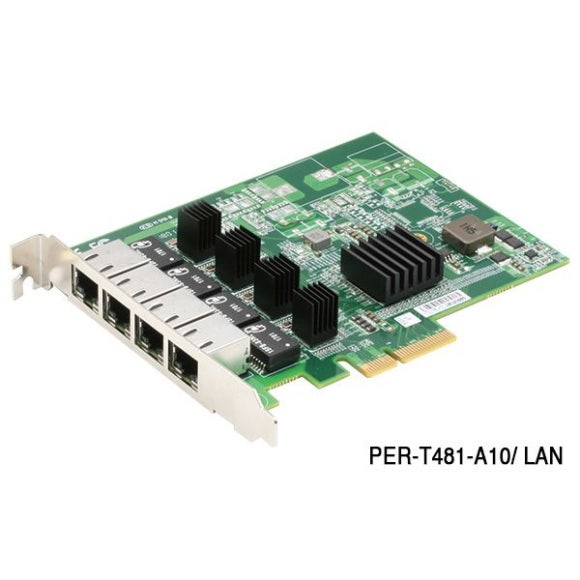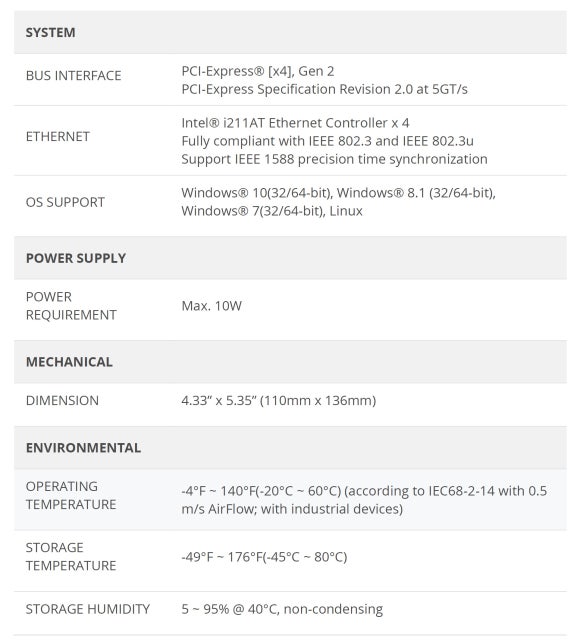What is Indsutrial LAN Card?

Industrial Network Interface Cards vs. Standard LAN Cards
Unlike standard network interface cards used in regular computers, industrial NICs are designed to operate reliably in extreme environments.
Extreme Environments: Industrial LAN Card maintain stable performance even in extreme conditions such as high or low temperatures, vibration, and humidity—conditions rarely encountered in standard environments.
High Reliability: These cards offer exceptional durability and stability, even in industrial environments where continuous, long-term operation is required.
Various Interfaces: Industrial LAN Card support a wide range of industrial standards and offer customized interfaces suited for specific environments.
Why are Industrial LAN Card Necessary?
-
Factory Automation: In production lines, industrial LAN Cards are essential for connecting various equipment and systems and for real-time data exchange.
-
Infrastructure Systems: In large-scale infrastructure systems like railways, telecommunications, and power plants, industrial LAN Cards are used to ensure stable data transmission and management.
-
Military & Aerospace: Industrial LAN Cards are critical for maintaining reliable communication in military and aerospace applications, where performance must withstand extreme conditions.
-
Medical Equipment: For accurate data transmission in medical devices, industrial LAN Cards are employed to meet the high reliability standards required in the medical field.
Features of Industrial LAN Cards
-
Robust Design: Industrial LAN Cards are designed with metal casings, dust-proof, and water-resistant features to withstand extreme environments.
-
Wide Operating Temperature Range: These cards operate reliably in a broad temperature range—from below freezing to high temperatures.
-
High Electromagnetic Interference (EMI) Resistance: Industrial LAN Cards are resistant to electromagnetic interference, ensuring stable communication.
-
Support for Various Protocols: Industrial LAN Cards support a variety of industrial protocols such as Ethernet, Profinet, EtherCAT, etc.
Considerations When Choosing an Industrial NIC
-
Operating Environment: It's essential to select a product suitable for the operating environment, considering factors like temperature, humidity, and vibration.
-
Required Port Count: The number of devices that need to be connected will determine the number of ports needed on the NIC.
-
Supported Protocols: Ensure that the NIC supports the protocols used by the system in which it will be implemented.
-
Environmental Resistance: If protection against dust or hazardous materials is needed, look for explosion-proof or highly durable products.
Example Product:
- 4 x Intel® i211AT Independent Controllers, Operating in -20°C to 60°C Range
- Industrial 4-Port LAN Card: PER-T481







